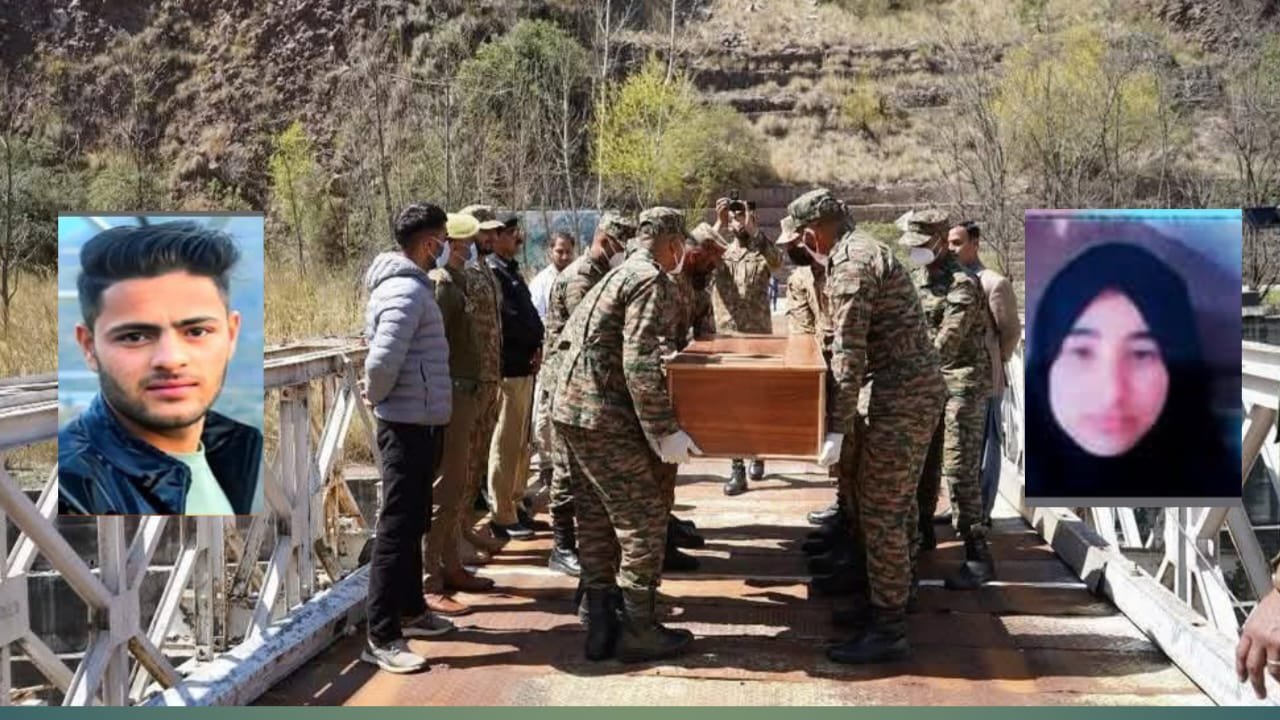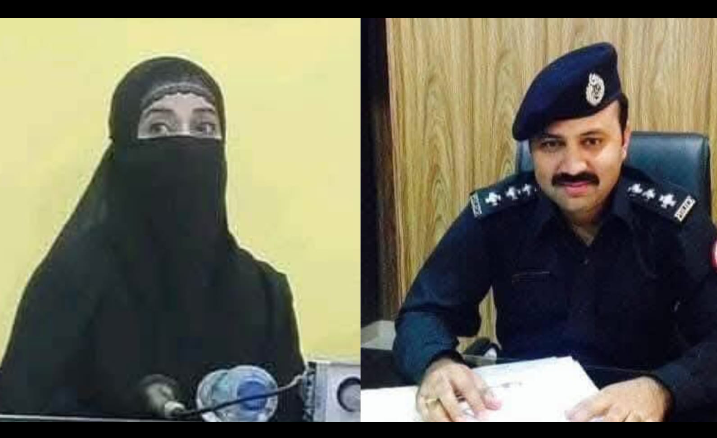Murdered Kashmiri Couple’s Bodies Surface in Pakistan-Administered Jammu Kashmir

By Waheeda Jammu Kashmiri
In a chilling incident that has reignited tensions in one of the world’s most contested regions, the bodies of a young couple—22-year-old Yasser Hussain and 20-year Asiya Bano—were discovered in the Jhelum River, sparking allegations of honor killing and cross-border intrigue. The case has drawn attention to the volatile social and political dynamics of Kashmir, where love often collides with tradition and territorial disputes.
From ‘Suicide’ to Suspected Murder
Initial reports from Indian-administered Jammu Kashmir claimed the couple had died by suicide by jumping into the Jhelum River near Uri, a town close to the Line of Control (LoC). For three days, search operations scoured the riverbanks until a grim discovery across the border upended the narrative.
Yasser’s body was found first in Pakistan-administered Jammu Kashmir’s Jhelum Valley, bound with ropes—a clear sign of foul play. A day later, Asiya’s brutally disfigured body surfaced nearby. Her nose was severed, and her hair and eyebrows had been shaved off, pointing to a violent attack. Local police confirmed both bodies showed signs of torture, prompting a murder investigation.
Families, Feuds, and a Forbidden Romance
Yasser, a driver from Kamil Kot village, and Asiya, a resident of Talanja, had reportedly been in a relationship and sought to marry—a decision that allegedly provoked fury in Asiya’s family. According to sources in Uri, the couple was lured to Asiya’s home, where they were allegedly beaten and killed. Their bodies were then dumped into the river in an attempt to stage the deaths as suicides. However, authorities have yet to confirm whether a formal case has been registered against the suspects.
Cross-Border Handover Amid Rising Tensions
In a rare moment of cooperation, the bodies were repatriated to Indian-administered Jammu Kashmir via the Chakothi crossing point, with Pakistani and Indian military officials overseeing the transfer. The handover, conducted under tight security, underscores the fragility of Kashmir’s divided territories—where even tragedies are shaped by geopolitics.
Broader Implications in a Fractured Region
Human rights groups estimate that hundreds of honor killings occur annually in Pakistan and India, often underreported due to societal pressure. In Kashmir, where legal systems are strained by decades of conflict, prosecuting such crimes remains challenging.
The case has also highlighted the human cost of Kashmir’s unresolved status. Residents along the LoC face not only the risks of cross-border shelling but also deeply entrenched patriarchal norms. As the couple’s bodies crossed a disputed boundary in death, their story symbolizes the region’s intersecting crises—of identity, justice, and survival.
About Author

Latest News!
 Opinion11/07/2025Pakistan Army Encroachments in Datot: How Militarization Threatens Women, Land, and Community Rights
Opinion11/07/2025Pakistan Army Encroachments in Datot: How Militarization Threatens Women, Land, and Community Rights Opinion11/06/2025How Pakistan’s ‘Open Merit’ Policy Is Erasing Kashmiri Identity
Opinion11/06/2025How Pakistan’s ‘Open Merit’ Policy Is Erasing Kashmiri Identity News07/01/2025The Zarnosh Naseem Case
News07/01/2025The Zarnosh Naseem Case Opinion05/13/2025Remember 13 May: Pakistan Killed 3 Kashmiris in Muzaffarabad
Opinion05/13/2025Remember 13 May: Pakistan Killed 3 Kashmiris in Muzaffarabad






